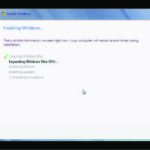An interview with numerous people is a stressful circumstance. In addition to the pressure to be recruited, other questions, like what to dress, how to prepare, how much money to ask, and much more, need to be answered before and during an job interview.
There are no set rules for a good interview, but you may learn certain tactics and enhance the chances of getting the job.
Out of starters to worldwide businesses, even in various countries, I have personally done over 30 job interviews in the previous 5 years I’ve learned a few things and now would like to share them with you.
Relaxation
First, it doesn’t help you to be worried or stressed therefore you should learn to relax. A calm (but not too calm) applicant appears more professional and assured than anxious. How do you do this, however?
Some fundamentals assist you to relax before the interview: There are:
- Refer to the role and the firm, become ready
- Come early, so you’ve got time to breathe.
- Concentrate on your strong abilities
- Note, an job interview is just a chat
Enter the interview understanding that there are always more chances on the market (if things go bad).
Take it as an experience, learn from your mistakes if your interview does not perform well and you will do more later.
If you are relaxed, your potential employer may be better expressed and your probability to get recruited is increased.
Be yourself and get better
This also matters as much as the first rule. Enter who you really are and what you know truly, from your future employer. Don’t claim to know something you don’t know. Don’t lie. Get yourself ahead of your competition by going well prepared, for example, talk about coding techniques, such as code obfuscation, let them know you’re prepared.
It’s all right not to know all
During the interview, you will get several questions. You can’t all know. No one can know it all, it’s all right. What is vital to know at least the basics in your field of expertise?
So when you get a question you don’t know much or nothing, simply admit it, but explain that you are eager to develop, you are open to learning new things.
Concentrating on learning
Your interest in new things is important. The world of software is changing fast. Continuous learning is one of our tasks. Moreover, the more you know, the better you become at your work, the more you make. Nowadays it is quite easy to ace your interview, for example, if you’re a developer it is easy to learn to react js interview questions and do well on your interview.
Ask about questions
It is anticipated that some background study on the firm and position will be placed before you attend an interview. One of the inquiries you could have is: “What are you aware of our business? “If you know your possible new work, it is also excellent to know.
During the job interview, there are 2 advantages:
First of all, you demonstrate you truly want to get the job. Because if you feel you are not going to get the job, then you’re not going to get hired.
It’s excellent for you, secondly. The more aware you are of the firm’s position, the better you can decide whether or not to take the job.
Not only do you answer questions, but you may ask them too.
Show someplace ONLINE your coding expertise
You will be questioned in some of the interviews whether you can demonstrate your coding skills. Everybody has a social media profile in today’s society. Why not, for instance, have a Github account? You may post or contribute to your projects free of charge.
The Github is optional, however, you may boost your chances of getting recruited substantially if you have at least one–2 examples of projects.
This is not a MUST, but I very much COMMEND to having a Github account, with samples of 1–2 of projects.
Wage expectancy
Companies usually inquire on the application form about your pay expectations. Make sure you know your local region’s market portfolio, so you better know what to expect.
For example, if the size of the market varies from 40,000 dollars to 60,000 dollars a year, you won’t receive the position unless you ask for 100,000 dollars annually. (But if your own firm is started, well.
Once I got a good interview, they gave me about $30,000, much less. So I had to decline the job, and I discovered another one that had a far greater wage next month.
So you know what your local market is and, depending on your experience, you may ask something between you.
Do not take really low offers except when you are hungry Finally, unless people ask, it is preferable not to speak about money.
What if the stuff goes wrong?
Certain interviews aren’t going as smoothly as you thought. Some of the following criteria may apply to you:
Very difficult technical job interview.
The company or position is not matching the description of the job Offering very little pay. To be replied to is irrelevant or too many inquiries. You receive interviews in cross-examination style from an interview group of five (Hard to believe but I lived that, they try to measure your stress level). Interviewers/managers arrogant or overly serious
Under these conditions, you cannot strike an agreement. You can become annoyed or uninspired, but you know later that it is not needed.
Every job interview is good or terrible, for you, and experience. Somewhere out there are always greater prospects, and children’s employers just look till they are found.
Don’t be late, last but not least
The more interviews you do, the better you get. It’s all about experiences. More stuff is to be covered. I’m also going to write part 2 and address the possible frequent technical questions.
In your next interviews, I hope these suggestions I gave assist you. I wish you, everyone, a great career, and good luck.


















